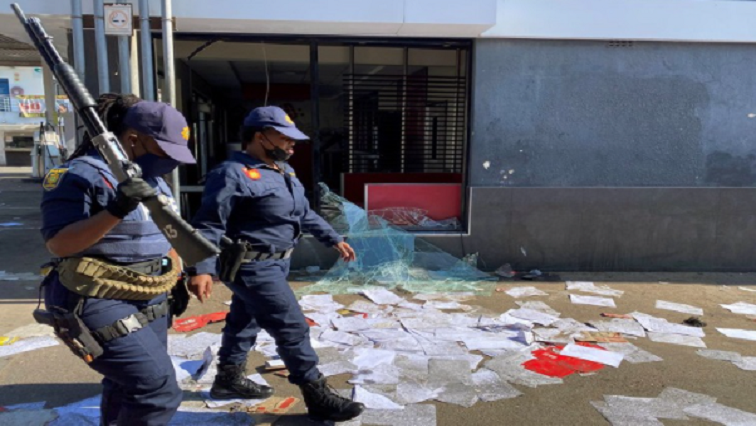The issue of riots, crime, and violence in South Africa is a growing concern as it presents a significant obstacle to human rights and respect for the rule of law in the country. Where there is unrest and violence in the country it goes without saying that human rights violations are present, if not rife. The recent looting and destruction were unparalleled and must be condemned in the strongest terms. They, however, demonstrate that crime and violence remain a disease in our society that must be cured in order for the country to pursue the visions of a country united in diversity.
Social media platforms provide a powerful mechanism through which the right to freedom of expression, access to information, and robust public debate can be fostered. Conversely, social media has also enabled pathways for false, manipulated, or harmful information to be created, disseminated and amplified by various actors at a scale, speed, and reach never known before.
South Africa has indeed embraced social media in all its forms with 41.9% of the total population being social media users as of January 2021. There is no doubt that the level 4 lockdown under the Disaster Management Act 57 of 2002 that prevents people from gathering in large numbers, placed even more impetus on the use of social media to and/or disseminate information and bridge constraints to gathering.
Given the fundamental importance of freedom of expression to democracy and the enjoyment of all other human rights and freedoms, South African law affords particularly strong protection to expressions on matters of public interest. The right to freedom of expression enshrined in section 16(1) of the Constitution however does ‘not extend to’ certain forms of harmful expression listed in section 16(2) including the ‘advocacy of hatred …that constitutes incitement to cause harm’. This is further reinforced by the Promotion of Equality and Prevention of Unfair Discrimination Act 4 of 2000 which prohibits in section 10 and 12 hate speech and the dissemination of information that unfairly discriminates respectively.
During the riots, some popular figures used social media to encourage violent responses from the public, amongst others. Where popular figures instigate violence and crime through social media platforms, their actions pervert the incredible contribution that social media can potentially make towards connecting our society in a positive and productive fashion. It is unfortunate that those who have allegedly incited violence through social media also exploit people in vulnerable situations and affect a wide range of human rights, including economic, social, cultural, civil and political rights. This has played out in the recent riots where the circumstances of the poor and unemployed have regrettably been exploited for political purposes.
In response, the Police Minister Bheki Cele confirmed on 13 July that there are 10-12 people that the security cluster is scrutinising for incitement of violence in the current riots. The Democratic Alliance (DA) opened cases against members of the Zuma family, and the Economic Freedom Fighters for stroking public unrest through social media. Hopefully, justice will prevail in these matters and that perpetrators will be held accountable for violations of the Constitution.
The use of social media to incite violence therefore remains prohibited by our laws, and is both a human rights violation, and a criminal offense. The increase in social media usage has brought about the challenge of regulating expression that is hateful and harmful. For example, during the South African Human Rights Commission (SAHRC or Commission) 2017 National Investigative Hearing on Racism and Social Media in South Africa, it was found that reporting mechanisms of social media sites, such as Facebook are not informed by South Africa’s constitutional imperatives. Consequently, when requests by users are made to remove posts that could constitute hate speech, the social media managing entities may not view it as such.
The capability or appropriateness of online platforms acting as “speech police” in order to determine whether certain posts do indeed violate the Constitution remains a problem. However, with collaboration between social media companies and law enforcement authorities it is possible for forensic evidence to contribute to the prosecution of criminals.
In the interim however, a greater responsibility is thus placed on individual users to ensure that they use social media sites responsibly in a manner that does not contravene the Constitution or legislation. Noting this, the Commission has developed, and is in the process of finalising a social media charter. This Charter serves to reaffirm that constitutional rights are equally applicable in the digital world as they are in the real world. The SAHRC hopes that the Charter will advance social cohesion and catalyse a society united in its diversity as envisaged in the Constitution.
In conclusion, the use of social media to fuel violent protest and lawlessness is problematic and violates our laws. Where such violations occur the public have several remedies available where cases against perpetrators can be opened, depending on the desired outcome, including the South African Police Services and the South African Human Rights Commission. Ultimately, it is vital that the respect for human rights and rule of law be protected. – Article by Commissioner André Gaum & Allan Tumbo


